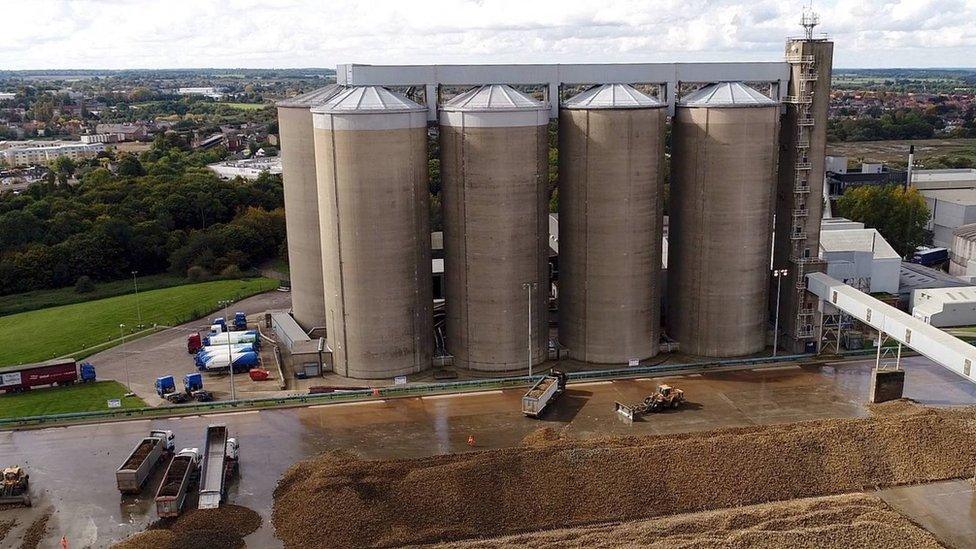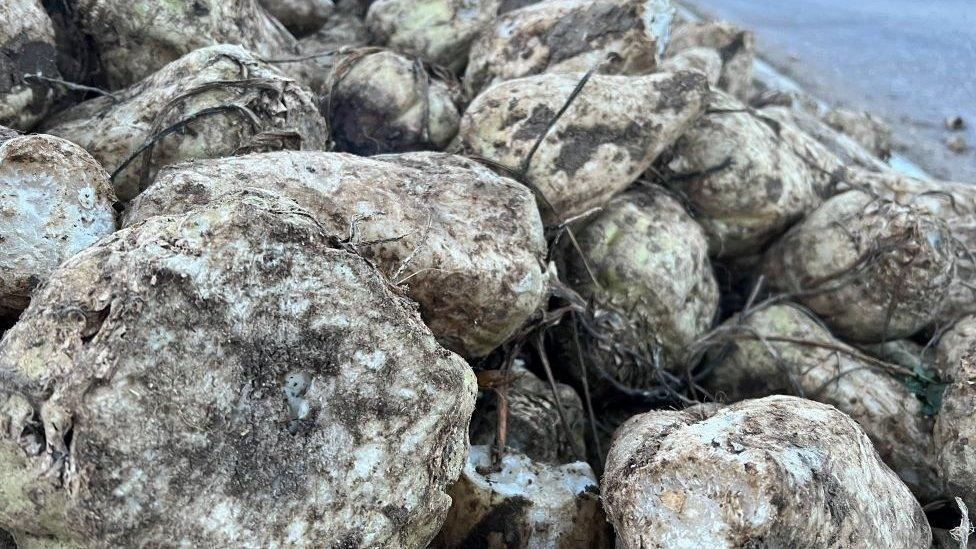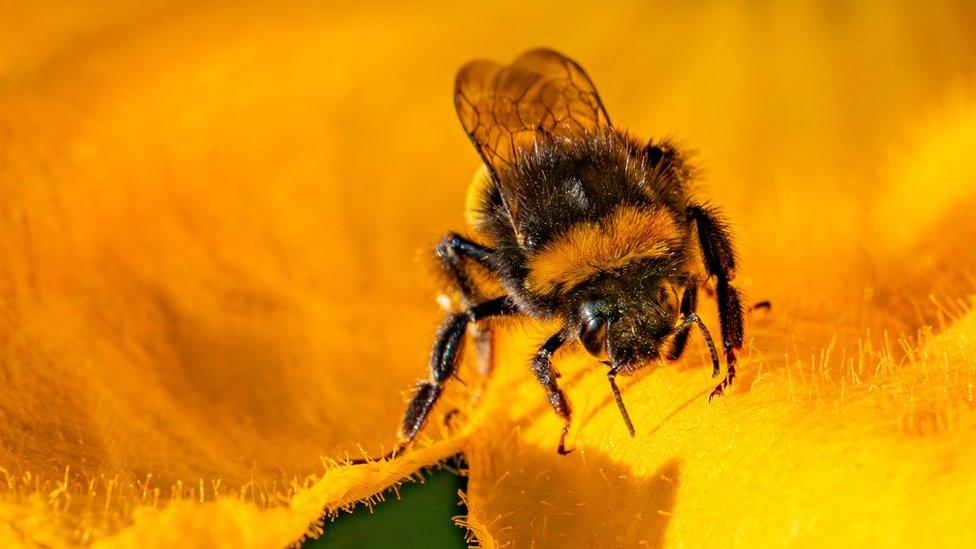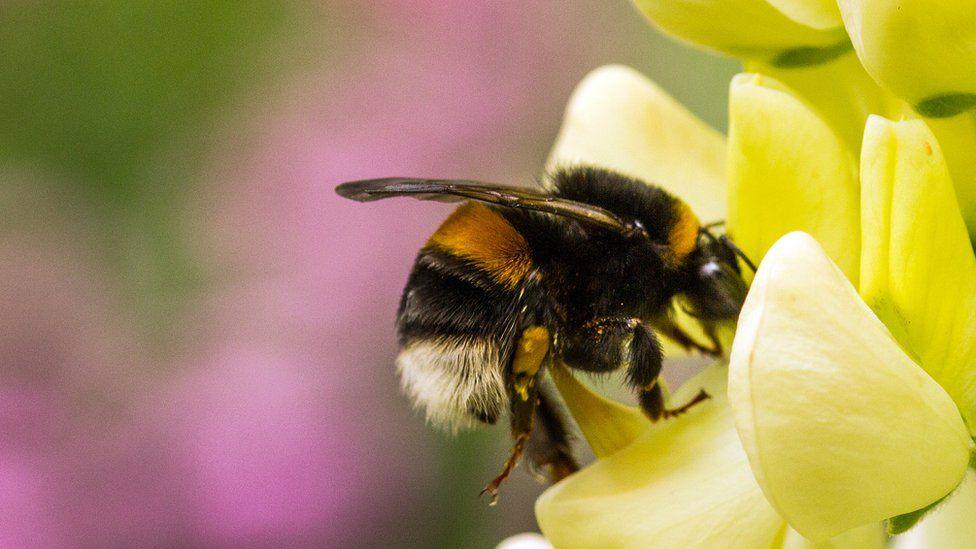Norfolk and Suffolk wildlife trusts criticise pesticide use on sugar beet
- Published

Sugar beet is turned into sugar at sites such as the British Sugar factory in Bury St Edmunds in Suffolk
Wildlife trusts have criticised emergency use of a pesticide usually banned because it can harm wildlife.
Use of the neonicotinoid on sugar beet seeds for the fourth year in a row was approved by government as "proportionate" last week.
The pesticide has previously made its way into the River Waveney on the Norfolk/Suffolk border.
Norfolk Wildlife Trust called it a "crucial issue" as "East Anglia is the heart of the British sugar industry".
The Suffolk Wildlife Trust said the pesticide, a seed treatment called thiamethoxam, making its way into rivers puts wildlife in the waterways "at risk".
The product has been banned since 2018 and can only be used if an independent, scientifically-verified level of threat posed by the disease called virus yellows, is met.

Sugar beet is grown across the east of England with the National Farmers' Union agreeing a price per tonne with the food industry
Ben McFarland, Suffolk Wildlife Trust's director of wildlife conservation and recovery, said the trust was "deeply disappointed" by the decision to use the pesticide.
He said it gets into rivers and streams "exposing the aquatic invertebrates that live there [to it] and putting the health of wildlife in our waterways at risk".
"We work with many farmers and farming clusters in Suffolk who are making brilliant adaptations to their land and practices to be more nature-friendly," he said.
He called for more to be done to "support nature-friendly farming" and reduce reliance on "toxic chemicals that compromise the health of nature".

Wildlife trusts in Norfolk and Suffolk are concerned about the effect on wildlife
Gareth Dalglish, Norfolk Wildlife Trust's nature recovery director, said: "This is a crucial issue for Norfolk. East Anglia is the heart of the British sugar industry, home to the majority of around 3,000 sugar beet farmers."
He said he understood the impact the virus can have on crops and urged for farmers to be supported in a way that protects pollinators and reduces river pollution.
When announcing the emergency use, the government said it was a "necessary and proportionate measure".

Follow East of England news on Facebook, external, Instagram, external and Twitter, external. Got a story? Email eastofenglandnews@bbc.co.uk , externalor WhatsApp on 0800 169 1830
Related topics
- Published18 January 2024

- Published18 January 2024
- Published17 January 2024